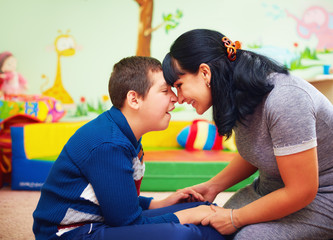NDIS - Australia’s national Scheme for people with disability
The National Disability Insurance Scheme, also known as the NDIS, is run by the National Disability Insurance Agency, also known as the NDIA. The National Disability Insurance Agency (NDIA) is an independent statutory agency responsible for implementing the National Disability Insurance Scheme (NDIS). It will support a better life for hundreds of thousands of Australians with a significant and permanent disability and their families and carers.
The NDIS provides funding to eligible people with disability to gain more time with family and friends, greater independence, access to new skills, jobs, or volunteering in their community, and improved quality of life. The NDIS takes a lifetime approach, investing early in people with disability and children with developmental delays to improve their outcomes later in life. The NDIS funds reasonable and necessary supports and services that relate to a person's disability to help them achieve their goals. 'Reasonable' means the support is most appropriately funded or provided through the NDIS. And 'necessary' means something a person needs related to their disability.

What types of support are funded? The types of support that the NDIS may fund for participants include:
Daily personal activitiesTransport to enable participation in community, social, economic, and daily life activities
Workplace help to allow a participant to successfully get or keep employment in the open or supported labor market
Therapeutic support including behavioral support
Help with household tasks to allow the participant to maintain their home environment
Help to a participant by skilled personnel in aids or equipment assessment, set up, and training
Home modification design and construction
Mobility equipment
Vehicle modifications
So far more than 500000 Australians who are living with disabilities are accessing the National Insurance Disability Scheme,
If you are aged between 7 and 64, a local area coordinator can help you to understand the NDIS, apply, and connect with other government and community supports. If you have a child aged under 7, an early childhood partner can provide support to children before they apply, and let families know if the NDIS is suitable for their child. More information can be found by visiting the NDIS website here.
